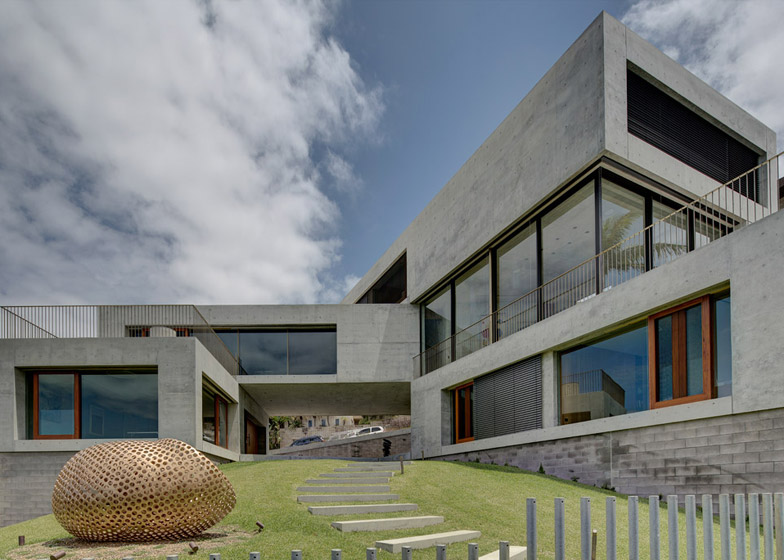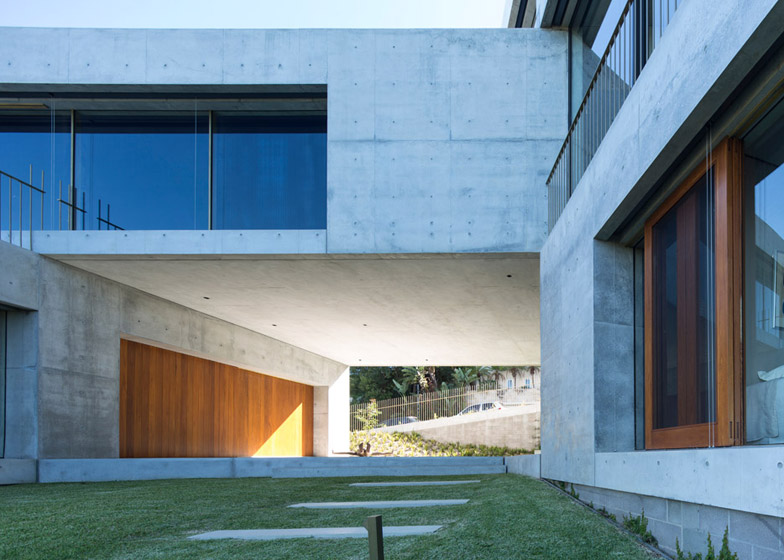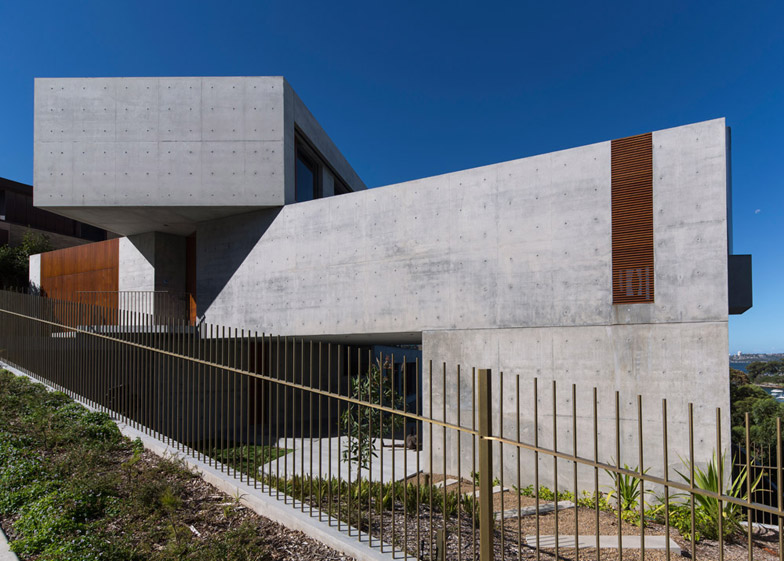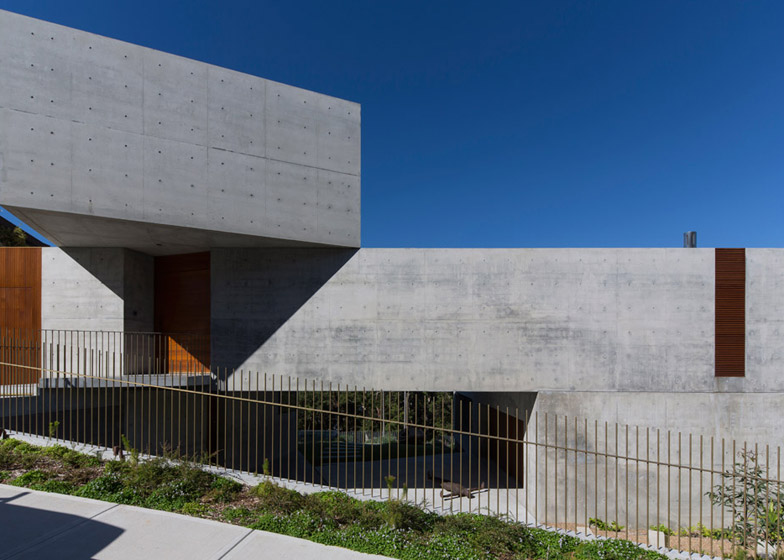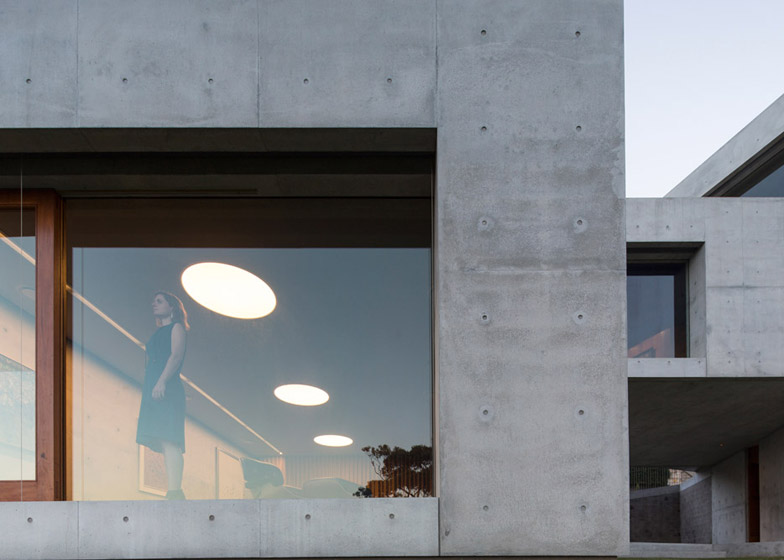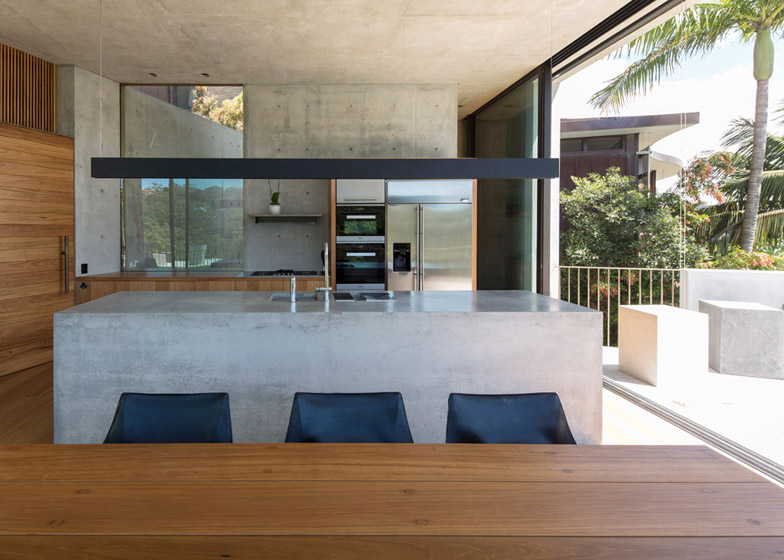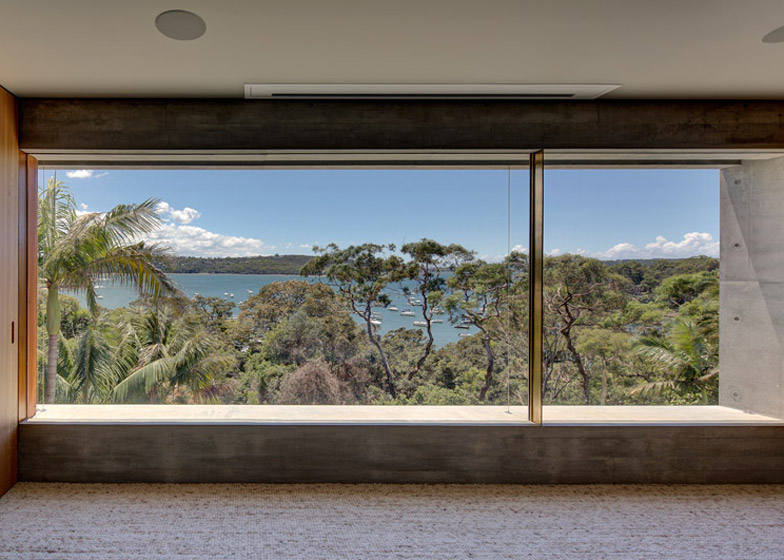The concrete volumes that make up this house on Sydney's seafront are arranged in a bridging formation to frame sculptures belonging to its art-collector residents (+ slideshow).
Architects Clinton Murray and Polly Harbison, based in Melbourne and Sydney respectively, used large expanses of concrete to create a neutral-toned backdrop for the richly textured and brightly coloured artworks in the clients' collection.
The void created between the overlapping blocks form a plinth for a figurative sculpture, while windows on the concrete facades frame artworks within the house.
"The form of the concrete building creates a framed window from the street, through a sculpture court, to the water views beyond," said the architects. "Art and views are shared with the street."
The house stands on a hill opposite a beach in the Mosman area of Sydney. The beach and sloping suburbs that surrounds it take their name from Balmoral Castle – the Scottish summer residence of the British royal family.
Named Balmoral House, the building itself is based on a piece by Isamu Noguchi, a Japanese-American abstract sculptor who also designed furniture for Herman Miller.
The sculptor's work focuses on a play between solid and void – a theme that led to the design of the house's bridging shape.
"Our clients are passionate supporters of the arts and they embraced conceiving of their home as a sculpture on the site," explained Harbinson and Murray. "The initial design was inspired by a work by Isamu Noguchi, a sculpture that is a play on solid and void."
"Central to the design is how the building contributes to this beautiful location and surroundings," they added. "Boxes shift orientation to respond to views, the sun and privacy requirements."
The four concrete and glass blocks each contain different functions. The largest features a wide glazed living area. It spans two base blocks, containing a gym and bedrooms, to create the bridge.
The blocks are also positioned at angles to suit the unevenly shaped site, as well as to provide the best views of the shoreline and gardens.
Bars of concrete set into the gently sloping grounds provide shallow steps that weave among the sculptures.
Inside, timber doors, floors and cabinetry help to visually break up the rawness of the concrete surfaces. A staircase with matching timber treads links the floors.
The tall concrete stairwell creates a space for displaying large-scale artworks, including a hanging wire sculpture and a long slice of timber with decorative markings.
Bedrooms, utility rooms and a gym are split between the two blocks that form the base layer of the building, while the entrance on the upper ground floor provides access to the glazed lounge and dining room.
Related content: see more seaside homes
The glazing slides back, linking the dining room to a elevated terrace with sea views.
A large master bedroom suite is housed within the fourth block, offering panoramic views out over the treetops.
Photography is by Brett Boardman.

